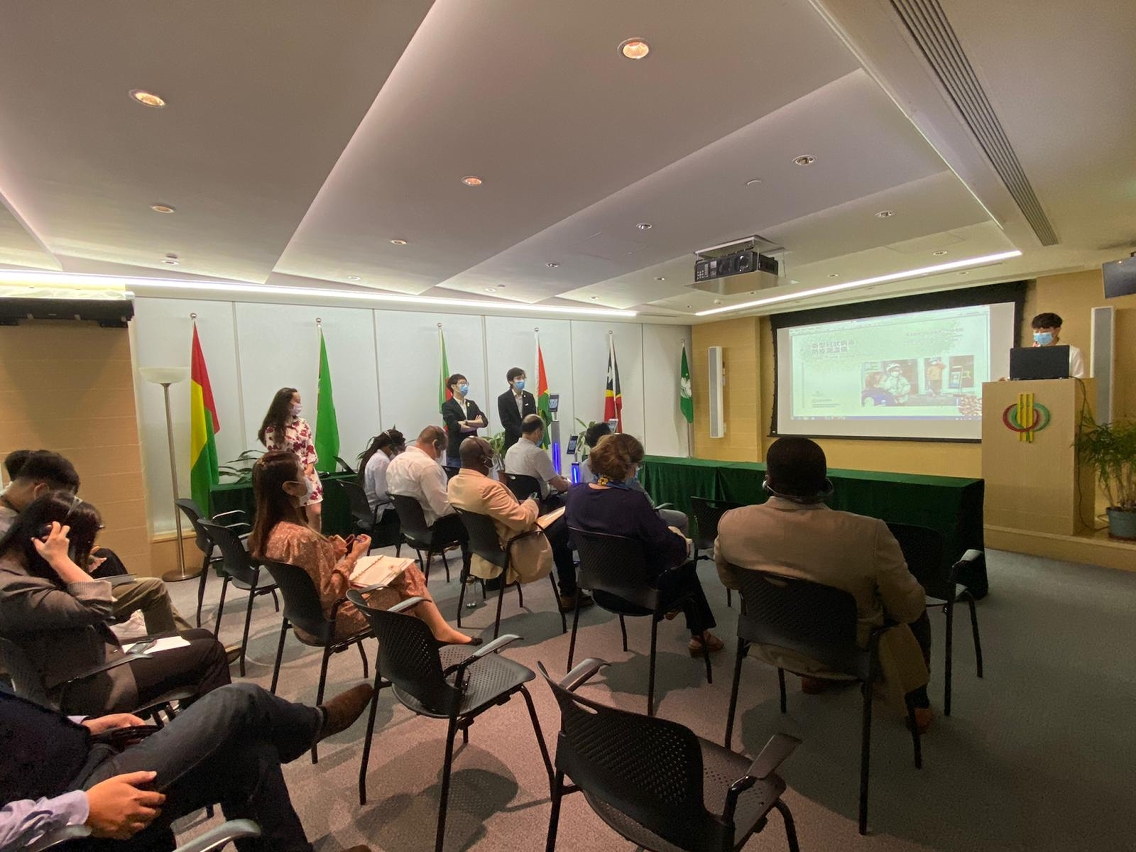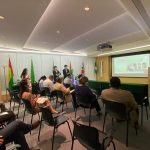 Figure 1: The project’s Principal Investigator is presenting the project results at the Permanent Secretariat of the China-Portugal Forum.
Figure 1: The project’s Principal Investigator is presenting the project results at the Permanent Secretariat of the China-Portugal Forum.
In order to strengthen Macao Special Administrative Region's effective response to the COVID-19 outbreak, the Science and Technology Development Fund (the FDCT) has solicited related research proposals in this February from local universities and science and technology enterprises. 26 projects have been funded out of the 74 received applications, in which 22 of the funded projects are university projects and the other 4 are science enterprise projects. To enhance the application of the research outcomes, the FDCT would periodically evaluate all the funded COVID-19 projects and would report the general status to the public. The progress of two of the projects is as follows:
1) Rapid Facial Recognition Body Temperature Measurement Device
Habitat Multimedia Co. Ltd. has proposed in the research plan that they will thoroughly analyze the structural characteristics of the coin insertion position of buses; analyze and classify the passengers' boarding behavior through big data; explore suitable body temperature’s detection of passengers and their traceability tracking on bus; and to design a suitable device that could monitor body temperature for buses. The company has preliminarily completed the research and development of the facial recognition temperature detection device, and is now obtaining professional certification and conducting Test Scenario. The company's deputy general manager – Wong, Man Kit said: "Compared with traditional handheld thermometers, our device uses a long-distance, non-contact rapid body temperature measurement which is faster and more accurate.”. Our thermometer can be installed in buses and restaurants , offices, medical institutions, housing, schools and government departments, etc. The product also comes with 18 languages including Portuguese. Recently, our product has been promoted to Portuguese-speaking countries through setting up at the Permanent Secretariat of Forum for Economic and Trade Co-operation between China and Portuguese-speaking Countries as a testing venue.
2)Optimized Nanosilver Antibacterial Disinfection Products
Macau Nanometals Technology Co., Ltd has proposed in the research plan that they would study the antibacterial disinfection performance under the influence of Nanosilver’s morphology, size, surface properties, etc, then to create nanosilver antibacterial disinfection slurry and thin film on the basis of such findings; and to achieve industrialization of antibacterial disinfection products. The company has now made nanosilver antibacterial disinfection liquid and rinse-free hand sanitizer, which can be applied to the environment, hands, object surface, household disinfection, etc. by spraying and smearing; our product can be especially used for high-end leisure travel and safe disinfection of hotel personnel and their belongings. The company has also achieved large-scale mass production of nanosilver antibacterial disinfection thin films; these nanosilver thin films can effectively kill 99.99% of bacteria and viruses that are in contact with it and is effective up to 7 days. The above products have been tested and used in many Macao primary and secondary schools, kindergartens, buildings, science centers, buses and other places; the data would also be analysed. The results meet the requirements, and the users have given enthusiastic and positive feedbacks.
In addition to the above two projects, the FDCT is also constantly following up on the research progress of other funded projects, we hope to obtain more updated research results to help science and technology enterprises to further enhance their research and development capabilities, speed up their market entry, and to serve the Macao citizens and provide anti-epidemic services as soon as possible.



